Three contemporary wildlife artists share their perspectives of the natural world.

The interpretation of the Paleolithic rock art of Europe runs from their being the scribblings of brute savages to their being complex symbols of the interrelationships of the male and the female. And there’s a whole world of theories in between.
The 19th-century Duwamish Chief Seattle said, “If all the beasts were gone, men would die from a great loneliness of spirit, for whatever happens to the beasts also happens to the man. All things are connected. Whatever befalls the Earth befalls the sons of the Earth.”
Not much later, the founder of analytical psychology, Carl Jung, wrote, “Thunder is no longer the voice of an angry god...No river contains a spirit...no snake the embodiment of wisdom, no mountain cave the home of a great demon. No voices now speak to man from stones, plants and animals, nor does he speak to them thinking they can hear. His contact with nature has gone, and with it has gone the profound emotional energy that this symbolic connection supplied.”
A hundred years later, artists draw from mythological stories of wildlife, scientific discoveries and their own conscious and subconscious experiences to create their work—perhaps reforming some of those connections or causing viewers to make their own.
この記事は American Art Collector の May 2019 版に掲載されています。
7 日間の Magzter GOLD 無料トライアルを開始して、何千もの厳選されたプレミアム ストーリー、9,000 以上の雑誌や新聞にアクセスしてください。
すでに購読者です ? サインイン
この記事は American Art Collector の May 2019 版に掲載されています。
7 日間の Magzter GOLD 無料トライアルを開始して、何千もの厳選されたプレミアム ストーリー、9,000 以上の雑誌や新聞にアクセスしてください。
すでに購読者です? サインイン

FULL EXPOSURE
Photographer Conor Martin documents the present using photographic methods of the past.
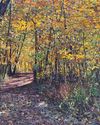
Autumnal Light
The landscapes and nature scenes of painter Jennifer Sowders are irresistibly tactile, filled with varying textures that seem to leap off the canvas.
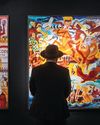
Art for All
Members of Art Dealers Association of America come together for a philanthropic affair.
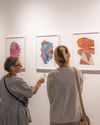
Modern Marketplace
Redwood Art Group brings together the San Diego region for another class-act celebration of contemporary artwork.
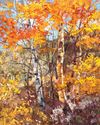
An Enchanting Evening
Scottsdale Artists’ School knows how to throw an art party.
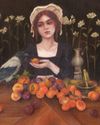
Timeless Tales
Soft, warm undertones underscore the mood of enchantment that runs through Nom Kinnear King’s paintings.

Next Exit New York
Coming off his series that focused on San Francisco and Los Angeles freeway signs, artist Eric Nash’s sights are now set on New York. Now on view at George Billis Gallery's Manhattan location are seven of Nash's new oil paintings and two drawings that explore the signage of New York City freeways. Although Nash's work is tightly rendered, he doesn’t consider himself a photorealist, but rather someone who utilizes those techniques to express ideas.
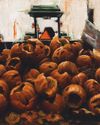
Monster Mash
Vampires, witches, ghouls and all things that go bump in the night are the theme of the exhibition Monster Mash, now at Abend Gallery.
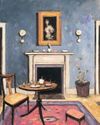
Inside/Outside
Those familiar with Geoffrey Johnson's populated by inky figures and trailing shadows that bleed into the wet streets, and architectural elements obscured to varying degrees by the misty atmosphere.
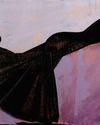
Bold Figures; Bold Color
For Brooklyn based painter J Louis, it’s all about balance, which can mean many different things in a composition, but for Louis, it’s about balancing his female figures among a unique landscape of color.